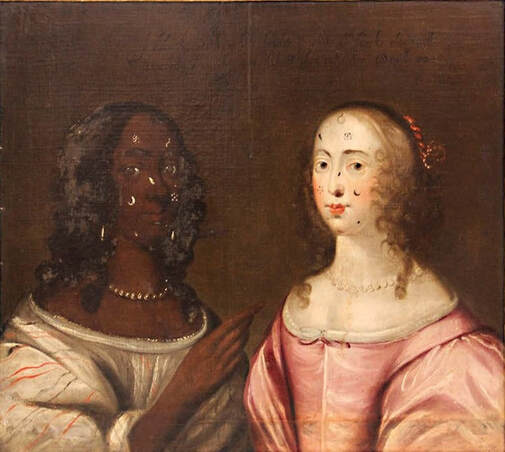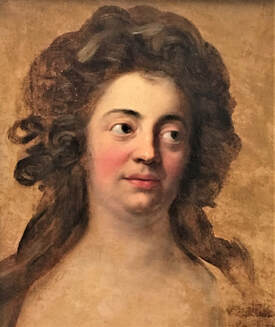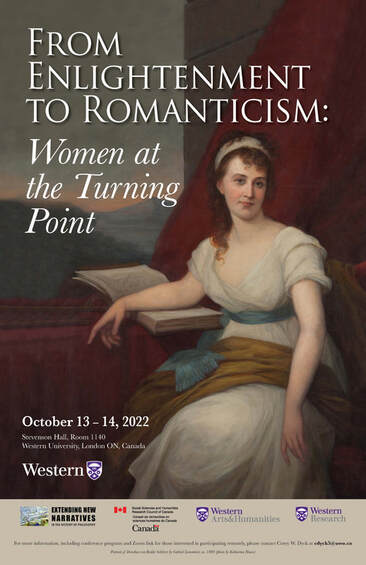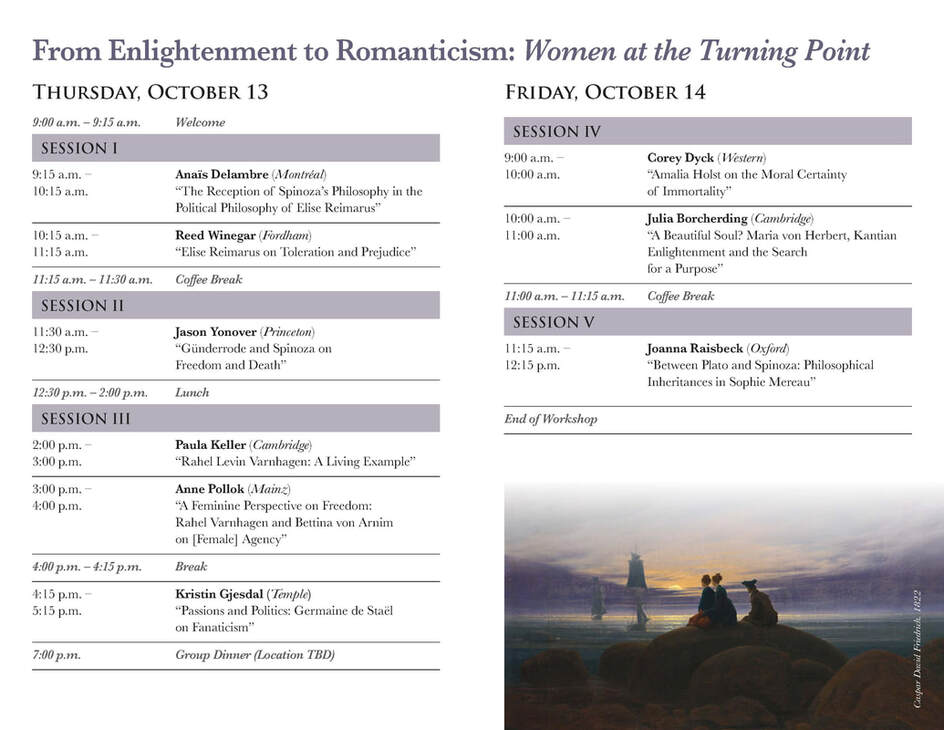Women, Dignity, and Reason in the Early Modern Period (1600 — 1800)
Date: 2–3 December 2024
Location: Monash University, Melbourne, Australia
In the seventeenth and eighteenth centuries, a number of philosophers called for the recognition of women’s “dignity and excellence” as members of the human race. Their notions of human dignity and excellence derived from various sources. Some writers put forward a Stoic notion of dignity founded on a conception of human beings as fundamentally rational and capable of governing their emotions and attaining self-control. Others appealed to a Christian worldview in which all human beings resemble God in terms of their capacity for free will and moral choice. And those in the Confucian tradition highlighted the fact that every human being has the moral potential to become a sage. These ideas formed the basis of arguments that women possessed moral and political rights, or that women should be educated, and that women should have greater autonomy within marriage.
We invite abstracts for papers related to these ethical, social, and political themes in early modern philosophy. Possible topics include, but are not limited to:
Submissions by early career researchers and advanced PhD students are especially encouraged. Funding for travel and accommodation will be provided for accepted submissions. We expect to invite between 4–7 participants.
The seminar will be held across two days:
(1) A reading day, in which participants will discuss key primary-source materials, including: (i) a chapter from the Stoic treatise On the Path to a Happy Life (in English translation) by Danish philosopher Birgitte Thott (1610-62); (ii) selections from A Serious Proposal to the Ladies (1694-97) by English thinker Mary Astell (1666-1731); and (iii) selected “Expositions” (in English translation) by the Korean neo-Confucian Im Yunjidang (1721-93). Participants are expected to have read the material and come prepared for discussion (selected readings will be provided in advance).
(2) A presentation day, with sessions devoted to participants’ work-in-progress papers on topics related to the seminar themes. Participants should be prepared to share their draft papers ahead of the seminar, to allow ample time for discussion.
Submission instructions: please email an abstract (300-500 words) and a short CV to [email protected] by 3 June 2024.
This seminar is a part of the Extending New Narratives Partnership project, supported by the Social Sciences Research Council of Canada and partner institutions. In mid-2025, the seminar will be followed by a larger ENN workshop on ethical, social, and political philosophy at partner institution McGill University.
Location: Monash University, Melbourne, Australia
In the seventeenth and eighteenth centuries, a number of philosophers called for the recognition of women’s “dignity and excellence” as members of the human race. Their notions of human dignity and excellence derived from various sources. Some writers put forward a Stoic notion of dignity founded on a conception of human beings as fundamentally rational and capable of governing their emotions and attaining self-control. Others appealed to a Christian worldview in which all human beings resemble God in terms of their capacity for free will and moral choice. And those in the Confucian tradition highlighted the fact that every human being has the moral potential to become a sage. These ideas formed the basis of arguments that women possessed moral and political rights, or that women should be educated, and that women should have greater autonomy within marriage.
We invite abstracts for papers related to these ethical, social, and political themes in early modern philosophy. Possible topics include, but are not limited to:
- The rights of women
- Female sagehood
- Moral and political equality
- The moral value of dignity
- Reason, virtue, and the emotions
- The moral distinction between humans and animals
Submissions by early career researchers and advanced PhD students are especially encouraged. Funding for travel and accommodation will be provided for accepted submissions. We expect to invite between 4–7 participants.
The seminar will be held across two days:
(1) A reading day, in which participants will discuss key primary-source materials, including: (i) a chapter from the Stoic treatise On the Path to a Happy Life (in English translation) by Danish philosopher Birgitte Thott (1610-62); (ii) selections from A Serious Proposal to the Ladies (1694-97) by English thinker Mary Astell (1666-1731); and (iii) selected “Expositions” (in English translation) by the Korean neo-Confucian Im Yunjidang (1721-93). Participants are expected to have read the material and come prepared for discussion (selected readings will be provided in advance).
(2) A presentation day, with sessions devoted to participants’ work-in-progress papers on topics related to the seminar themes. Participants should be prepared to share their draft papers ahead of the seminar, to allow ample time for discussion.
Submission instructions: please email an abstract (300-500 words) and a short CV to [email protected] by 3 June 2024.
This seminar is a part of the Extending New Narratives Partnership project, supported by the Social Sciences Research Council of Canada and partner institutions. In mid-2025, the seminar will be followed by a larger ENN workshop on ethical, social, and political philosophy at partner institution McGill University.
Image: title page from Thott's translation of Seneca into Danish. anonymous, The Royal Library
********
Education, Freedom & Human Nature: 17th – 19th centuries
October 27 – 28, 2023, McGill University
Friday October 27
930-11am Discussion of Macaulay readings: Facilitator: Daniel Seggie (McGill)
11am-11:20am Coffee Break
11:20am-12:30pm Lauren Kopajtic (Fordham), “Catharine Macaulay on Animals, Care, and Education”
12:30-2pm LUNCH
2-3:10pm Elena Gordon (McGill), “Catharine Macaulay on Cultivating our Sympathetic Potential”
3:10-3:30: Coffee Break
3:30-4:40pm Eylül Yücel (Bilkent), “The Place of Animals in Wollstonecraft’s and Macaulay’s Educational Philosophy”
630pm Dinner
Saturday October 28
930-11am Discussion of Anna Julia Cooper readings: Facilitator: Dallas Jokic (McGill)
11-11:20am Coffee Break
11:30am-12:40pm Patrick Frierson (Whitman), “Montessori’s Pedagogical Naturalism”
1240-2pm LUNCH
2-3:10pm Sergio Gallegos Ordonica (CUNY-John Jay), “The importance of music in Sor Juana’s pedagogy”
3:10-330: Coffee Break
3:30-4:40pm Getty Lustilla (Northeastern), “Sophie de Grouchy and the Problem of Boredom”
630pm Dinner
We will discuss a set of texts that have been made available in the dropbox and discussion of the participants’ papers that will be pre-circulated. (I may add some additional Anna Julia Cooper materials, drawn from the recently published Portable Anna Julia Cooper and the digital materials available through the archive at Howard University.)
Draft papers of participants should be circulated to all participants by October 12.
Each participant will be paired with two other participants, of whose papers they will take the lead in the discussion. To that end, please have 2-3 questions or comments about each of the two papers with which you have been paired.
Authors should prepare a short (10 minute) introduction of your paper to start the sessions off (Please keep it short so there is plenty of time for discussion!)
930-11am Discussion of Macaulay readings: Facilitator: Daniel Seggie (McGill)
11am-11:20am Coffee Break
11:20am-12:30pm Lauren Kopajtic (Fordham), “Catharine Macaulay on Animals, Care, and Education”
12:30-2pm LUNCH
2-3:10pm Elena Gordon (McGill), “Catharine Macaulay on Cultivating our Sympathetic Potential”
3:10-3:30: Coffee Break
3:30-4:40pm Eylül Yücel (Bilkent), “The Place of Animals in Wollstonecraft’s and Macaulay’s Educational Philosophy”
630pm Dinner
Saturday October 28
930-11am Discussion of Anna Julia Cooper readings: Facilitator: Dallas Jokic (McGill)
11-11:20am Coffee Break
11:30am-12:40pm Patrick Frierson (Whitman), “Montessori’s Pedagogical Naturalism”
1240-2pm LUNCH
2-3:10pm Sergio Gallegos Ordonica (CUNY-John Jay), “The importance of music in Sor Juana’s pedagogy”
3:10-330: Coffee Break
3:30-4:40pm Getty Lustilla (Northeastern), “Sophie de Grouchy and the Problem of Boredom”
630pm Dinner
We will discuss a set of texts that have been made available in the dropbox and discussion of the participants’ papers that will be pre-circulated. (I may add some additional Anna Julia Cooper materials, drawn from the recently published Portable Anna Julia Cooper and the digital materials available through the archive at Howard University.)
Draft papers of participants should be circulated to all participants by October 12.
Each participant will be paired with two other participants, of whose papers they will take the lead in the discussion. To that end, please have 2-3 questions or comments about each of the two papers with which you have been paired.
Authors should prepare a short (10 minute) introduction of your paper to start the sessions off (Please keep it short so there is plenty of time for discussion!)
The philosophy of education, while central through much of the history of the discipline, has fallen out of fashion. Recently, however, historians of philosophy have started to recognize the interest in education of women philosophers of the past, as well as of others who recognize the liberatory power of education, especially for those in subordinate and subjugated positions. Engaging with this work, brings out how a philosophy of education is inter-connected with more familiar philosophical topics including: (i) the development of human cognitive abilities; (ii) the realization of human freedom; and (iii) the cultivation of virtuous and enlightened citizens, to list just a few examples. In this seminar, we will engage with the works of women and other neglected figures of the 17th-19th centuries. We will aim to develop methods for engaging with unfamiliar and understudied texts and to use these methods to begin to articulate the philosophies of education of these figures, examining the connections that they draw between education, personhood, freedom, rationality, and morality.
The format will be divided into two parts:
(a) discussion of excerpts from Catharine Macaulay’s (1731-1791) Letters on Education (1790) (“Introductory Letter”, XVI “Influence of Impressions”, XXI “Morals Must be taught on Immutable principles”, XXII “No Characteristic Difference in Sex”, XXIV “Male Rakes”); and Anna Julia Cooper’s (1858-1964) “The Higher Education of Women” in her A Voice from the South (1892), as well as an address by Fanny Barrier Williams at the 1893 Congress of Representative Women, titled “The Intellectual Progress of the Colored Women of the United States Since the Emancipation Proclamation”, with a response by Anna Julia Cooper. Participants are expected to have read the selections of Macaulay, Cooper and Barrier Williams, and to come prepared for discussion of them.
(b) sessions devoted to discussion of participants works-in-progress on topics broadly related to education.
We invite abstracts between 300-500 words for papers focused on the philosophy of education in the history of philosophy, with a preference for the thought of philosophers who have been marginalized in the history of philosophy, and in particular women (including the authors of the works for discussion). Possible topics include, but are not limited to:
Participants should be prepared to share draft papers to be read ahead of the seminar to allow ample time for discussion. (Each participant will be asked to read closely the drafts of 2-3 other participants.) Submissions by early career researchers and advanced PhD students are especially encouraged. Funding for travel and accommodations will be provided to confirmed participants. We expect to invite 5-7 participants. This seminar will be followed in March by a workshop focused on philosophy of education in the history of philosophy at partner institution Jyväskylä University, and revised papers can be submitted for consideration to that workshop.
Deadline: 30 July 2023. Please email paper proposals along with a short CV to [email protected]
This seminar is a part of the Extending New Narratives Partnership project, supported by the Social Sciences Research Council of Canada and partner institutions.
The format will be divided into two parts:
(a) discussion of excerpts from Catharine Macaulay’s (1731-1791) Letters on Education (1790) (“Introductory Letter”, XVI “Influence of Impressions”, XXI “Morals Must be taught on Immutable principles”, XXII “No Characteristic Difference in Sex”, XXIV “Male Rakes”); and Anna Julia Cooper’s (1858-1964) “The Higher Education of Women” in her A Voice from the South (1892), as well as an address by Fanny Barrier Williams at the 1893 Congress of Representative Women, titled “The Intellectual Progress of the Colored Women of the United States Since the Emancipation Proclamation”, with a response by Anna Julia Cooper. Participants are expected to have read the selections of Macaulay, Cooper and Barrier Williams, and to come prepared for discussion of them.
(b) sessions devoted to discussion of participants works-in-progress on topics broadly related to education.
We invite abstracts between 300-500 words for papers focused on the philosophy of education in the history of philosophy, with a preference for the thought of philosophers who have been marginalized in the history of philosophy, and in particular women (including the authors of the works for discussion). Possible topics include, but are not limited to:
- personhood and education;
- education and freedom;
- education and human nature;
- education and cognitive and/or moral development;
- A specific understudied figure’s philosophy of education;
- How women and other neglected figures were responding to contemporaneous views of education
Participants should be prepared to share draft papers to be read ahead of the seminar to allow ample time for discussion. (Each participant will be asked to read closely the drafts of 2-3 other participants.) Submissions by early career researchers and advanced PhD students are especially encouraged. Funding for travel and accommodations will be provided to confirmed participants. We expect to invite 5-7 participants. This seminar will be followed in March by a workshop focused on philosophy of education in the history of philosophy at partner institution Jyväskylä University, and revised papers can be submitted for consideration to that workshop.
Deadline: 30 July 2023. Please email paper proposals along with a short CV to [email protected]
This seminar is a part of the Extending New Narratives Partnership project, supported by the Social Sciences Research Council of Canada and partner institutions.
Image: Allegorical Painting of Two Ladies, anonymous, c1650, Compton Verney
********
image: Photo by Corey Dyck Portrait of Dorothea Schlegel, Anton Graff. Staatliche Museen zu Berlin
From Enlightenment to Romanticism: Women at the Turning Point
October 13-14, 2022, Western University
Contact Corey Dyck at [email protected] for further information and with any questions.
Call for Abstracts/Proposals: Deadline August 1, 2022
Event Description: Enlightenment and Romanticism constitute the two most influential intellectual movements in Germany at the turn of the 19th century. While considerable scholarly attention has been paid to the male philosophers who were active within these traditions, women also made key contributions to both the Enlightenment and Romanticism; moreover, through their experiments in genre, their intellectual interests that defied the reified academic topographies and hierarchies, and most of all their recognition of the limitations, oversights, and failures of forms of Enlightened thinking, women were arguably crucial drivers in the transition from the Enlightenment to Romanticism. This workshop will explore women’s contributions to and critical engagements with these two intellectual traditions, and will also investigate their under-acknowledged role in the transition from one to the other.
Guidelines: The Scientific Committee welcomes submissions on any topic related to women’s contributions to the late Enlightenment and early Romantic thought within the German context. Prospective participants are encouraged to submit abstracts of presentations, and/or proposals for panels (including but not limited to multiple presentations on a common theme, or an author-meets-critics session). Submissions by junior scholars and graduate students are encouraged. Funding will be made available to cover travel and lodging costs for confirmed participants.
Deadline: Proposals should be no longer than 600 words, and can be sent to the host/organizer Corey W. Dyck ([email protected]). The deadline for submissions is August 1, 2022.
Scientific Committee: Corey W. Dyck (Host/Organizer), Kristin Gjesdal, Anaïs Delambre
This workshop is organized as part of the Extending New Narratives Partnership Grant project and is supported in part by funding from the Social Sciences and Humanities Research Council of Canada. For more information go to ENN project,
Event Description: Enlightenment and Romanticism constitute the two most influential intellectual movements in Germany at the turn of the 19th century. While considerable scholarly attention has been paid to the male philosophers who were active within these traditions, women also made key contributions to both the Enlightenment and Romanticism; moreover, through their experiments in genre, their intellectual interests that defied the reified academic topographies and hierarchies, and most of all their recognition of the limitations, oversights, and failures of forms of Enlightened thinking, women were arguably crucial drivers in the transition from the Enlightenment to Romanticism. This workshop will explore women’s contributions to and critical engagements with these two intellectual traditions, and will also investigate their under-acknowledged role in the transition from one to the other.
Guidelines: The Scientific Committee welcomes submissions on any topic related to women’s contributions to the late Enlightenment and early Romantic thought within the German context. Prospective participants are encouraged to submit abstracts of presentations, and/or proposals for panels (including but not limited to multiple presentations on a common theme, or an author-meets-critics session). Submissions by junior scholars and graduate students are encouraged. Funding will be made available to cover travel and lodging costs for confirmed participants.
Deadline: Proposals should be no longer than 600 words, and can be sent to the host/organizer Corey W. Dyck ([email protected]). The deadline for submissions is August 1, 2022.
Scientific Committee: Corey W. Dyck (Host/Organizer), Kristin Gjesdal, Anaïs Delambre
This workshop is organized as part of the Extending New Narratives Partnership Grant project and is supported in part by funding from the Social Sciences and Humanities Research Council of Canada. For more information go to ENN project,




